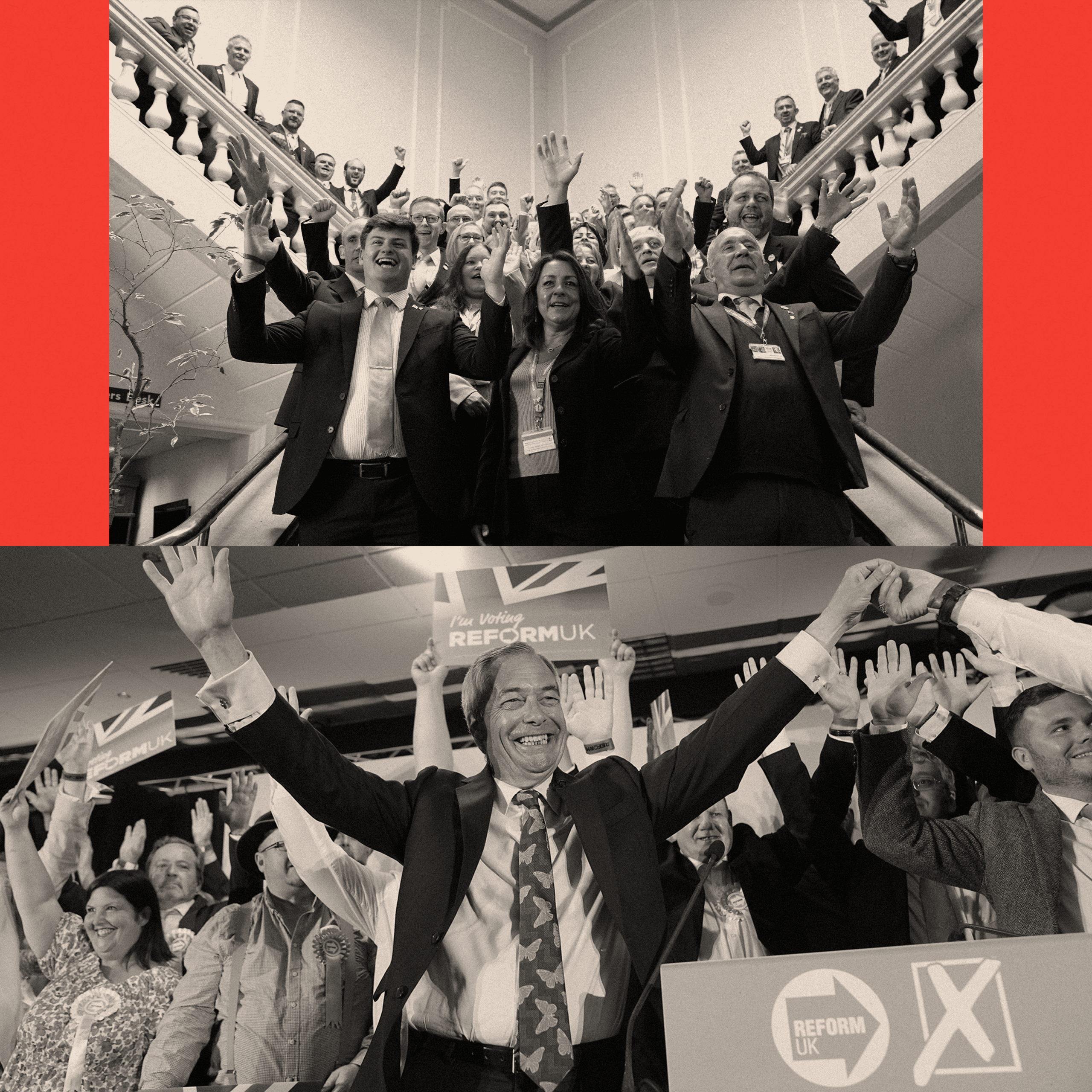
Reform UK could win more seats than any other party at the next general election - perhaps enough to form a government. Or so suggest repeated opinion polls, released since May. That was also when Reform won control of 10 English local authorities - so what does their first six months at the helm at local level show about what a UK government led by them could look like?
Listen to Alex reading this article
Last month a leaked video recording showed Linden Kemkaran, Reform UK's leader in Kent, swearing at councillors from her own party and telling them to "suck it up" if they didn't agree with her.
The footage became national news - insights into tensions within local government are, after all, rarely made public, and Kent is Reform UK's self-professed flagship council.
Plenty of critics seized on the incident.
Reform suspends four councillors after video leak
Labour MPs in Kent labelled her "unprofessional" and "not up to the job," and local Liberal Democrat and Green groups claimed Reform's running of the council had descended into chaos.
Five of Kent's Reform councillors have been expelled from the party amid the upheaval. Kemkaran, meanwhile, remains firmly in post.
And she has declared that it is "business as usual" at Kent County Council.
To some the fallout was undoubtedly damaging and has prompted questions about whether this insurgent party, that is consistently topping national opinion polls, really is a credible force ready to run the country - something they are trying to prove.
Danny Kruger, who is one of Reform's five MPs, has his own take. Last month he described the party as a bit of a pirate ship with an "ill-disciplined" crew and a "buccaneering" captain, but added: "A powerful ship with a dangerous broadside, a terror to its rivals…
"The job… is to help turn this pirate ship into His Majesty's Royal Navy ship, ready to enter the King's service and serve our nation."
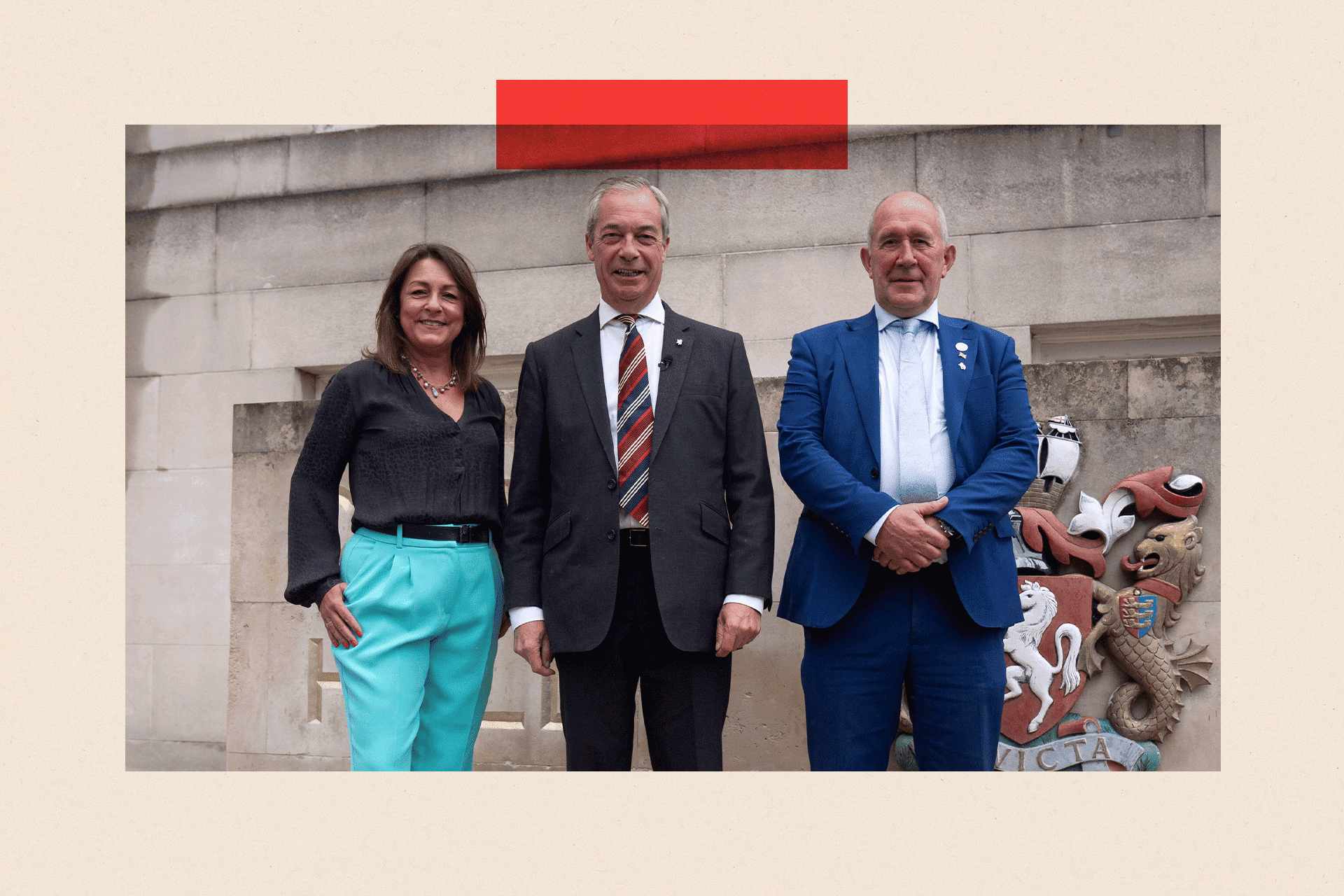
Five of Kent's Reform councillors have been expelled from the party. Linden Kemkaran (left) remains in post
So what can we glean from Reform's performance at local level about how they lead - and how well they have so far fared on delivering their promises?
These are, after all, promises that are not dissimilar in nature to those they would need to keep if they were successful in their bid to reach Number 10.
Reform's own version of DOGE
It has been exactly six months since the local elections saw Reform take outright control of 10 English local authorities, including six of 21 county councils.
In all it won 677 seats - more than any other party, amounting to 41% of the total up for election.
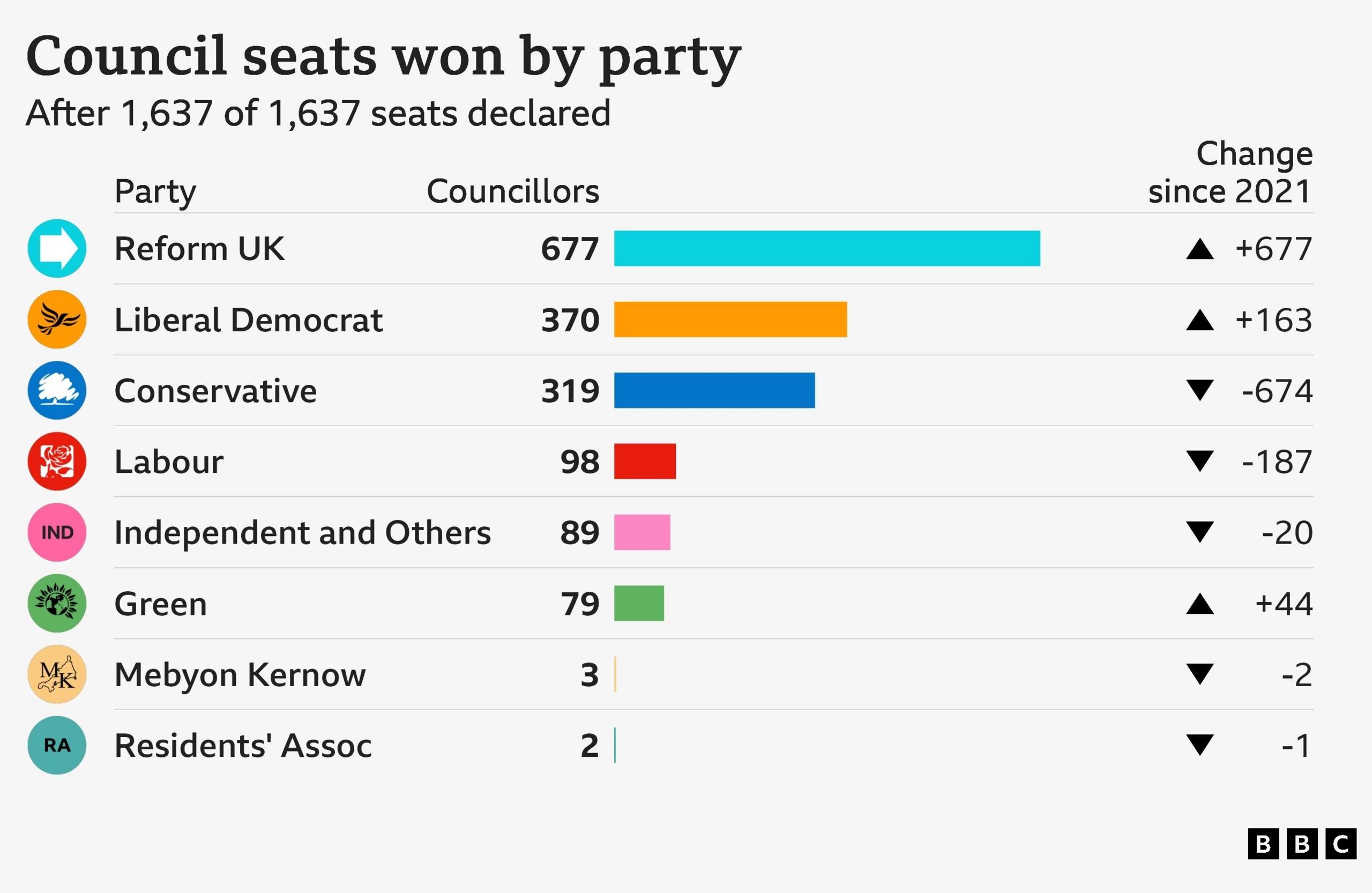
Before the elections, Nigel Farage addressed a packed rally in Birmingham promising his party would "send in the auditors… get rid of the fraudulent contracts… cut spending" if it won.
Shortly after their success in the local elections, Reform launched a "DOGE" unit, based on billionaire Elon Musk's efforts to cut spending in the US with a Department of Government Efficiency.
A photo call on the steps of Kent County Council followed, with a promise that a team of software engineers, data analysts and forensic auditors would "visit and analyse" local authorities to identify "wasteful spending".
But the unit has run into legal challenges in accessing sensitive council data. So far it is reported to have visited only a handful of the councils in England that Reform controls.
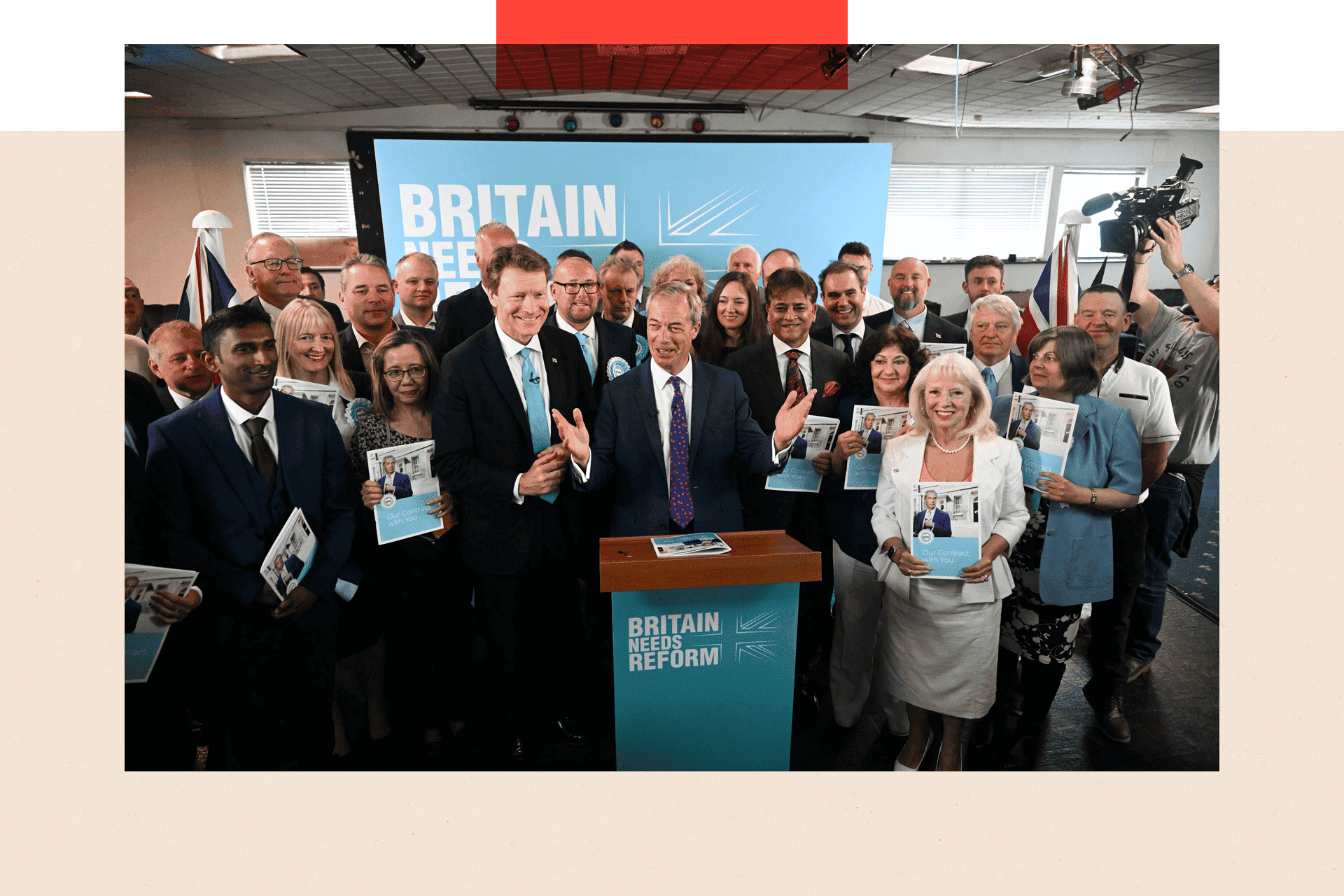
Local elections saw Reform UK take outright control of 10 English local authorities
Zia Yusuf, Reform's head of policy who led the DOGE team until last month, acknowledges there is a limit on how much control local authorities have over their budgets, blaming "overwhelming demands" from Whitehall. Nonetheless he insists that hundreds of millions of pounds in savings have already been identified.
"The reality is there's a lot of information that can be shared… because it's in the public domain already," he says. "[DOGE] has been working with every single one of our councils on an ongoing basis."
He points to certain decisions by Kent County Council, including halting a planned office move and stopping net-zero schemes, as examples of the savings he says Reform has found.
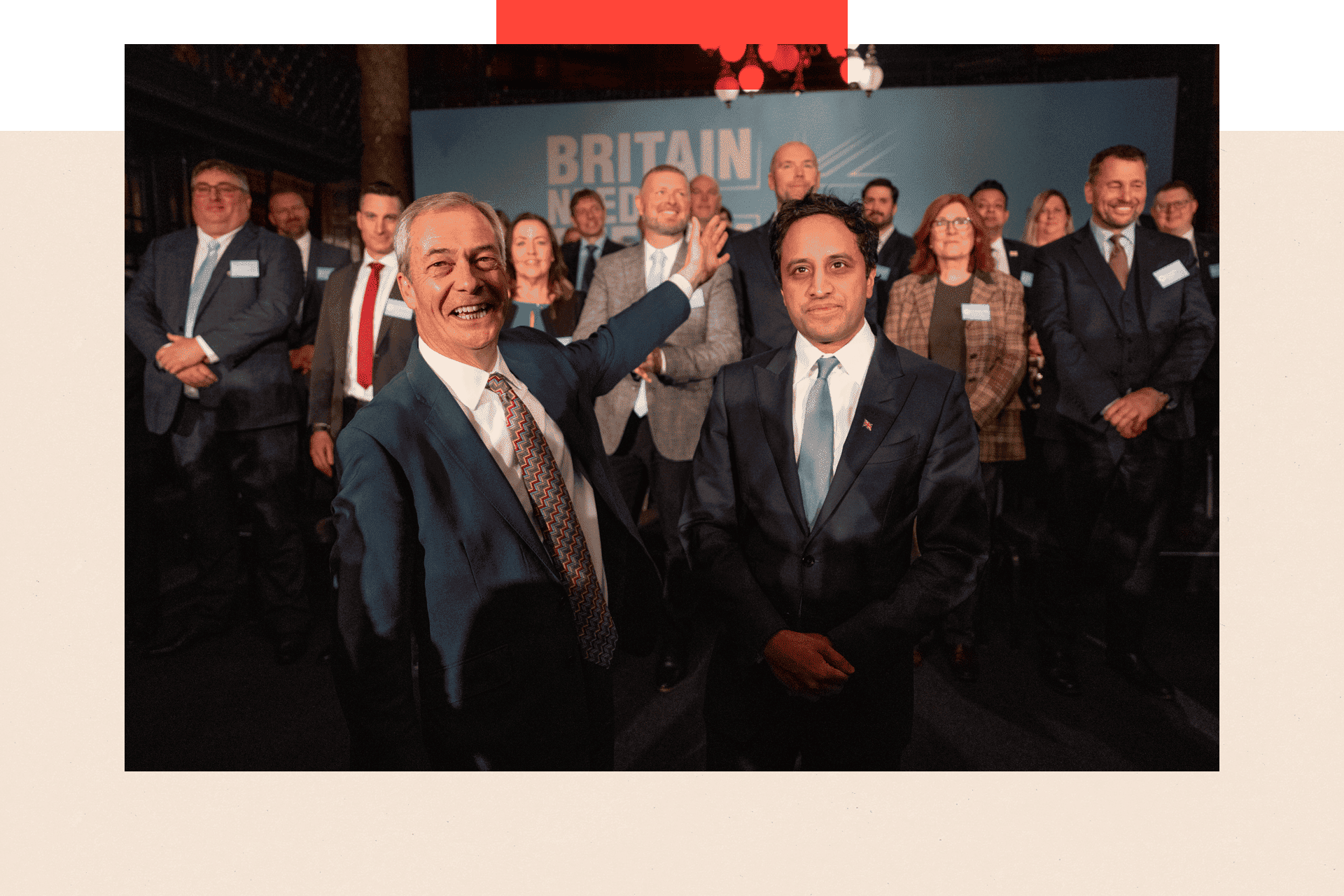
Zia Yusuf, a former Reform chairman, led the DOGE team until last month
Councils spend the bulk of their budgets on statutory services that they have to provide by law, and the cost of these services has spiralled in recent years.
The County Councils' Network, which represents some of England's largest local authorities, says its members spend on average 69% of their budgets on adult social care and children's services, with some spending up to 76% - an increase from 63% a decade ago.
Reform's argument is that there's still "waste" to be found, with Yusuf saying: "This idea that… because social care is statutory there's no point in finding those savings - we don't buy that."
But Stuart Hoddinott, an associate director at the Institute for Government think tank, believes that the savings Reform have identified so far are "minuscule" in comparison to the financial challenge facing the sector.
"They've found things that are just so tiny to be completely insignificant or are cutting programmes that might actually end up saving money in the longer run.
"It has just been a complete sort of mirage so far... It's like somebody who makes £30,000 worrying about losing 2p per year."
Budget pressures and a 'broken' system
The pressure on council budgets across the country has been well-documented. Ahead of this year's spending review, the Local Government Association estimated councils would face a funding gap of £8.4bn by 2028/29.
The controversial Kent council meeting, in which tensions boiled over, was a private discussion that seemed to focus, among other things, on both budgets and local government reorganisation.
It is another illustration of how, when it comes to setting a budget, Reform is now facing many of the same challenges as parties that preceded it.
Stuart Hoddinott acknowledges that Reform has entered a "broken" system, given the pressure on funding for statutory services and cuts already made across the board - but he accuses the party of "bluster" and "outlandish promises".
"They have focused on culture wars, things like 'Oh we'll just cut DEI (diversity equity and inclusion) programmes from local authorities and won't run a Pride flag up the pole every June, then that will solve our financial problems,'" he argues.
"They were also very naive to think that they would be the ones to solve it [budget pressures] given that you have had 15 years of 300-odd local authorities all battling this and trying to come up with solutions."
More from InDepth
Would leaving the ECHR really 'stop the boats'?
- Published9 October
Ed Davey loves clowning around, but is it time the Lib Dems got serious?
- Published20 September
Reform's DOGE unit has now had a change of personnel.
Richard Tice, the party's deputy leader, has taken over, a change he says was simply a "natural evolution" from Yusuf.
He has said billions can be saved, and that his focus will be on local government pension schemes, property and "waste-related contracts". The party, he adds, will also make announcements on support for children with special educational needs and disabilities, which is a cost pressure for councils.
"You'll be hearing over the next few weeks in areas where we have achieved savings, we have identified savings – and where we need to have some serious discussions about what actually is sensible in certain areas," he has said.
But these are thorny issues that will likely prove controversial.
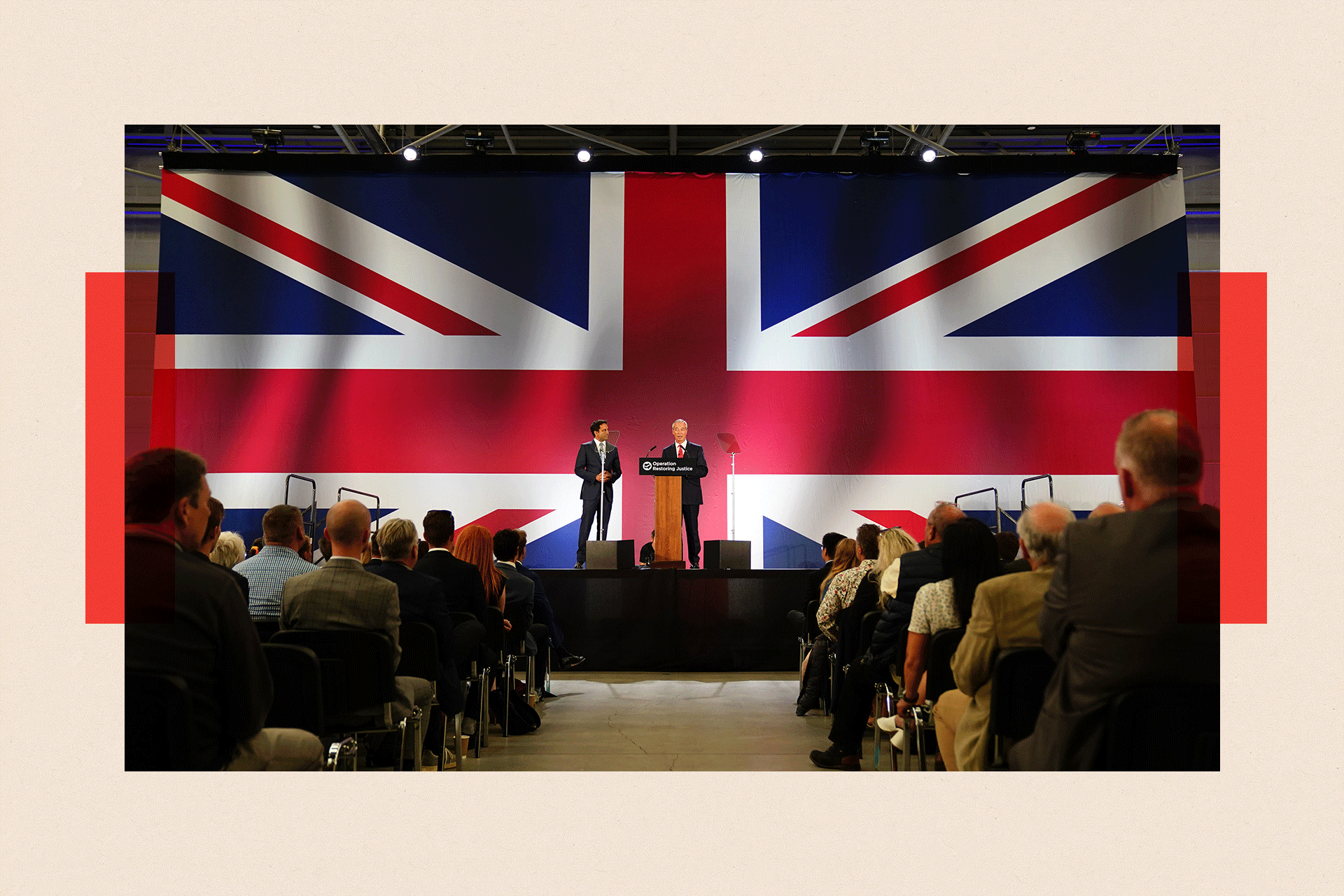
Zia Yusuf (pictured with Nigel Farage) acknowledges there is a limit on how much control local authorities have over their budgets, blaming 'overwhelming demands' from Whitehall
Tony Travers, a professor in the Department of Government at the London School of Economics, argues that any benefits would likely take time to filter through.
"Reforming the pension system… might produce benefits for local government in the medium term, but it's probably not going to do it for next May, next April," he says.
"That's the trouble. With a lot of these things, they can't be done quickly or as quickly as Reform needs."
He believes that Reform's cost-cutting narrative was, ultimately, "never realistic" - and in his view the party is now facing the "dawning reality" of an "extraordinary period of financial constraint" that other councils have faced before them.
Future of council tax rises
Now, as councils begin the process of setting budgets for next year, the picture looks bleak for many - including those led by Reform.
Lancashire is facing a budget gap of £100m over the next two years; in West Northamptonshire the council has warned of "tough choices" as it tries to plug a £50m gap; while Worcestershire has asked residents for their views on a potential council tax rise of 10%, combined with millions of pounds of cuts.
And Warwickshire council - led by George Finch, who was just 19 years old when he took office this summer - warned of "difficult decisions to come".

George Finch was just 19 years old when he took office this summer
Even though the government has increased the amount of funding available to councils this year and is introducing a new method of allocating funding from next year, claiming it is "fixing a broken system", this all still poses a challenge for Reform UK, if it is to fully meet its promises to cut costs and save money.
Early indications are that Reform-led councils will raise council tax from April 2026 – something acknowledged by both Richard Tice and Zia Yusuf - though both say the focus is on keeping increases low.
"We never said we would cut council tax," Tice says. "But if you can identify the savings, identify what you shouldn't be doing… then we can achieve lower increases than anybody else."
Yusuf suggested the rises were unlikely to exceed inflation levels.
"I would expect certainly [in] most of our councils [for] council tax not to go up by more - it is their decision, but it will be a rise in line with inflation, as opposed to the council going into bankruptcy or a rise much more than 5%," he says.

Reform has pointed the finger at Labour and the Conservatives for what they say are broken promises
(His comments came before Reform-led Worcestershire signalled the possibility of a 10% rise.)
But keeping council tax relatively low sometimes entails spending cuts – which might not prove popular.
And the question now is whether Reform really can prove to be better custodians of public money than their predecessors – and avoid the effective bankruptcy that has hit some other local authorities, while providing value for money.
Scaling up the challenge
At the start of the year, Reform UK, Labour and the Conservatives were all averaging about 25% in opinion polls registering voting intention.
But in May that all changed: for more than five months Reform's average poll result has hovered around 30%, while the two other parties have now fallen below 20%.
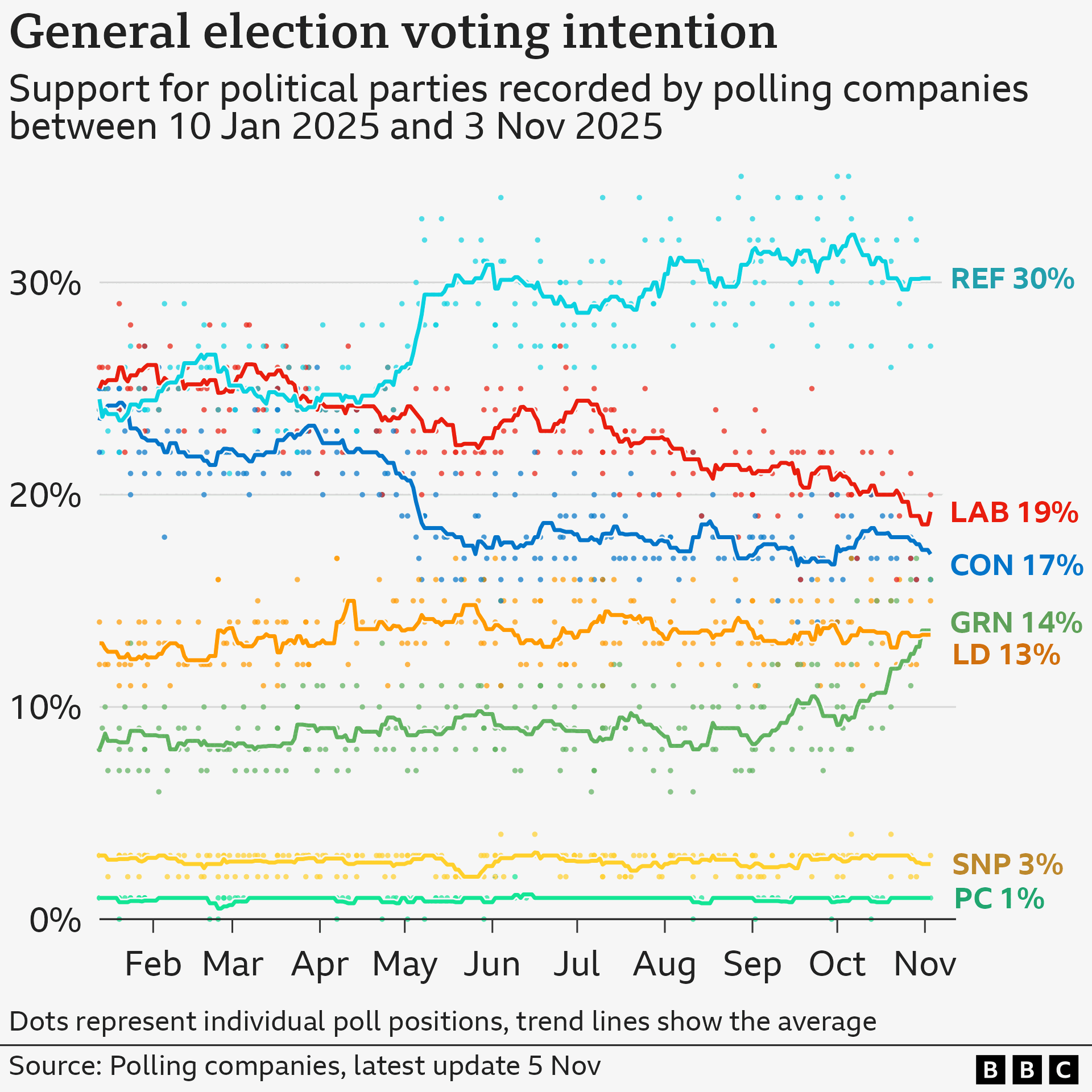
Prof Travers believes the party would likely encounter challenges similar to those it is currently facing in councils were it to win the keys to Number 10.
It has previously promised tax cuts, and an overhaul of government spending to increase efficiency, echoing its programme for local government.
Already there are signs they are realising what is realistic, and what is not.
Earlier this week Farage rowed back on his party's previous promise to deliver tax cuts worth £90bn a year.
"Substantial tax cuts" are not currently "realistic" because of the "dire state" of the public finances, he said, proposing instead "relatively modest" changes, such as raising tax thresholds and scrapping inheritance tax for family-run businesses.
"The truth is, the constraints of real government would be just as real if they got in at Westminster," Prof Travers says.
"Could you really cut benefits for millions of people? It's not that easy… So all of this is the kind of local version of the fact that even political parties who attempt to cut or reduce NHS spending, find themselves increasing it. It's just a local version of that."
Ben Ramanauskas, a senior research fellow in economics at the right-leaning think tank Policy Exchange, argues that Reform's instinct to look to cut back waste is right – despite the challenges.
"Definitely, any party should be looking for efficiency savings," he says. "This is taxpayers' money being spent and the priority has to be essential public services. There are examples of where there is some waste going on.
"But it is a very tough job for local authorities and councillors," he adds. "And I think any party in that position would possibly struggle, given just how our system operates."
He argues it will be easier to "scale up" savings at a national level, with the ability to pull all the levers of power.
Reform’s main risks
Looking ahead to the next general election, it would be logical to assume that the fate of Reform - and whether or not it will win enough support to make the leap to Downing Street - rests in part on how it fares at the helm of the councils with these gnarly financial challenges.
After all, Reform has pointed the finger at Labour and the Conservatives for what they say are broken promises - so what are the consequences if they cannot deliver on their own pledges in local government?
Luke Tryl, director of focus group and polling company More in Common, argues that this link is not necessarily as direct as it may seem.
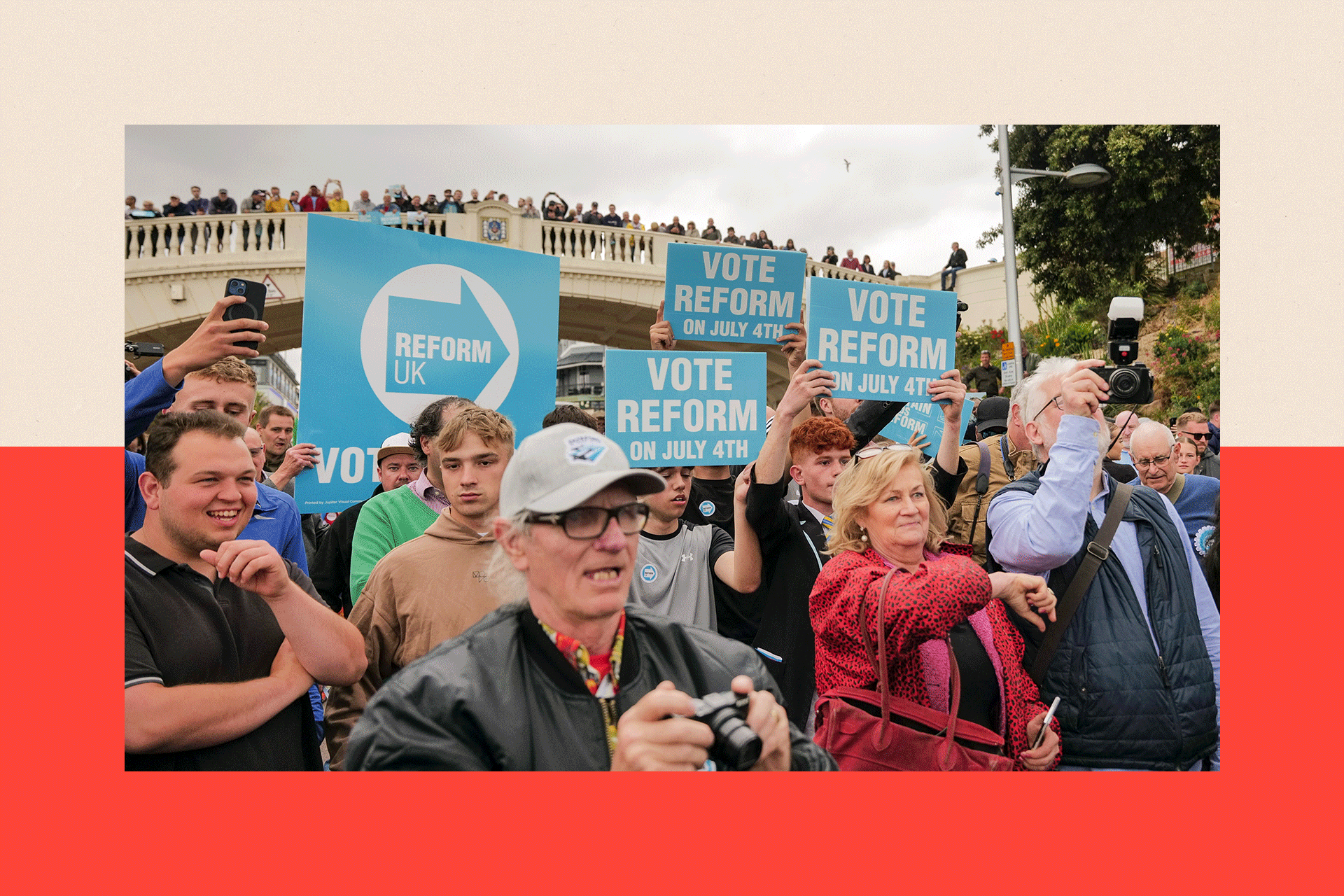
Dissatisfaction with the economy, NHS and immigration is driving support for Reform
"If you look at the reasons people went and voted for Reform in the local elections, they were number one – overwhelmingly - migration, and Channel crossings in particular. And number two, general disillusionment with the main parties.
"I'm just not sure that Reform's failure to find savings necessarily helps with that."
Instead, he believes that one of the main risks for Reform that could cost it supporters would be a significant failing in one of the councils – such as a crisis in social care, or bins, or bankruptcy.
"I don't say that the message of 'Reform has put your council tax up' is going to be deterring people in the general election," he added.

Reform UK could be the biggest party in the next parliament
As to whether Reform is ready, based on the evidence so far from their leadership of England's councils, in the six months since May, the jury is out.
"It's very difficult to say exactly that Reform councillors are more or less chaotic than other councillors," says Stuart Hoddinott.
"They get more attention. So these stories tend to blow a bit more. Having said that, there does seem to have been a lot of incidents since the election."
Meanwhile, the party's performance in councils has arguably faced even more scrutiny than their political opponents.
And while the party says it is making progress on its promises, it is clear it is grappling with the same set of challenges as the parties that came before.
So far, it seems the solutions are not proving easy to find for anyone.
Top image credits: Gareth Fuller/ PA - Jacob King/ PA and Bloomberg/Getty Images

BBC InDepth is the home on the website and app for the best analysis, with fresh perspectives that challenge assumptions and deep reporting on the biggest issues of the day. You can now sign up for notifications that will alert you whenever an InDepth story is published - click here to find out how.

